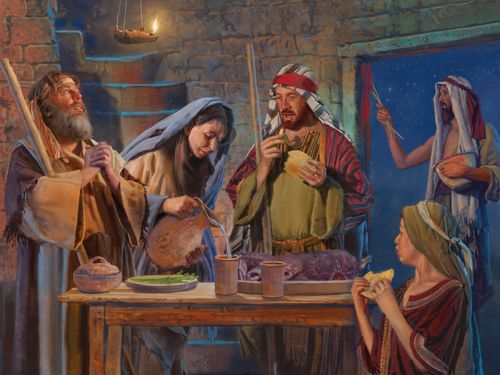The Bible contains several examples of food storage, particularly in the Old Testament, and offers wisdom and guidance regarding the importance of preparing and storing food for times of need.
One of the most well-known examples of food storage in the Bible is the story of Joseph and the famine in Egypt. God gave Joseph the ability to interpret Pharaoh’s dream and prepare for a coming famine by storing up grain during the seven years of plenty (Genesis 41:46-49). When the famine came, Joseph was able to distribute the stored grain to the people of Egypt and neighboring lands, saving many lives (Genesis 41:54-57).
Another example of food storage is found in the story of the Israelites wandering in the wilderness. God provided manna for them to eat each day, but he also instructed them to gather and store extra on the sixth day to provide for the Sabbath, when they were not to gather any manna (Exodus 16:22-30).
Proverbs 6:6-8 offers wisdom regarding the importance of preparing for the future: “Go to the ant, you sluggard; consider its ways and be wise! It has no commander, no overseer or ruler, yet it stores its provisions in summer and gathers its food at harvest.”
In addition to these examples, the Bible emphasizes the importance of being good stewards of the resources God has given us, including our food. Proverbs 12:27 says, “The lazy do not roast any game, but the diligent feed on the riches of the hunt.” This verse highlights the importance of being diligent and taking the necessary steps to prepare and preserve food.
Overall, while the Bible does not give specific instructions on food storage, it does contain examples and principles that emphasize the importance of preparing and storing food for times of need, as well as being good stewards of the resources God has given us.
